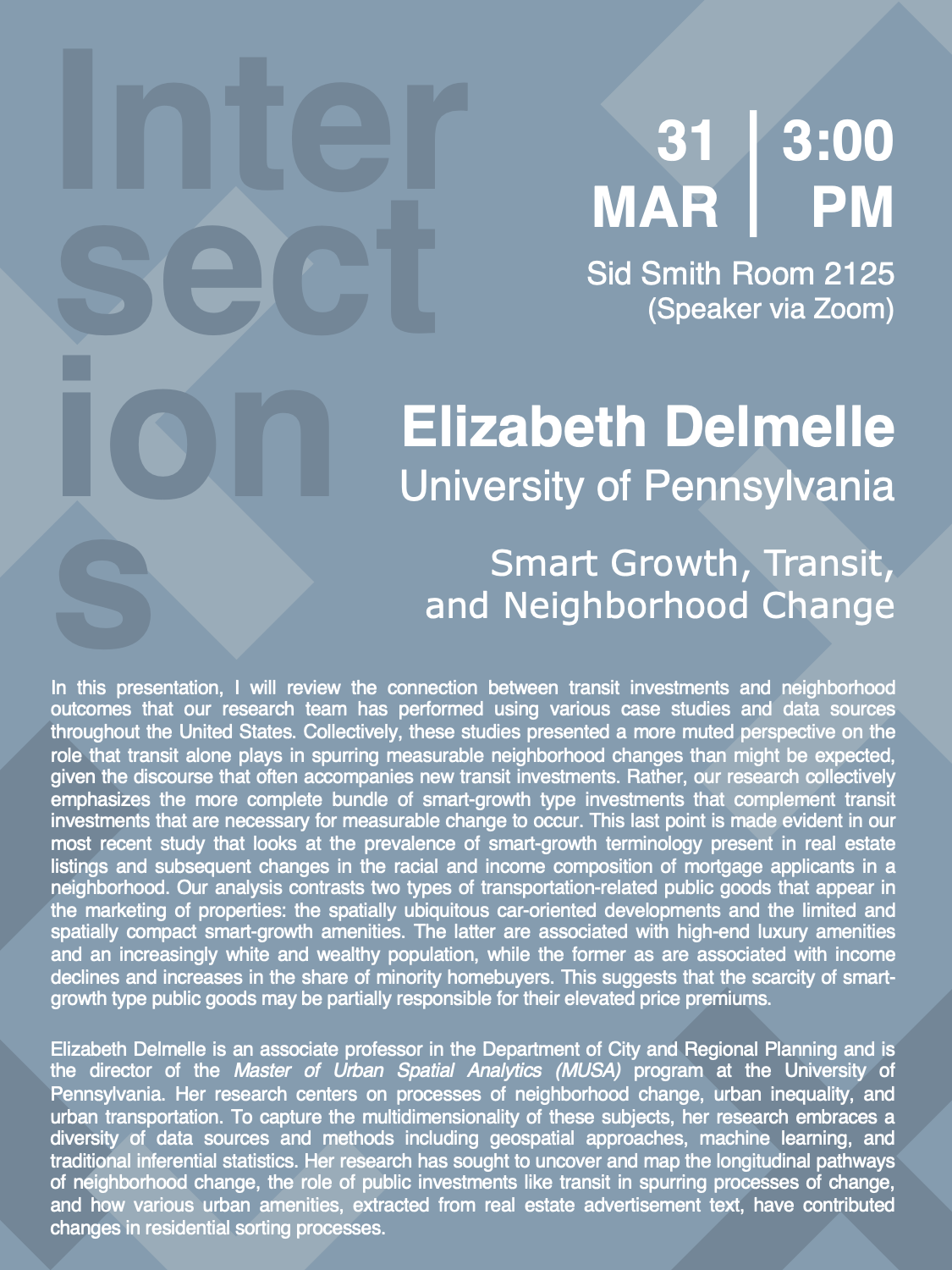Smart Growth, Transit, and Neighborhood Change
When and Where
Speakers
Description
'In this presentation, I will review the connection between transit investments and neighborhood outcomes that our research team has performed using various case studies and data sources throughout the United States. Collectively, these studies presented a more muted perspective on the role that transit alone plays in spurring measurable neighborhood changes than might be expected, given the discourse that often accompanies new transit investments. Rather, our research collectively emphasizes the more complete bundle of smart-growth type investments that complement transit investments that are necessary for measurable change to occur. This last point is made evident in our most recent study that looks at the prevalence of smart-growth terminology present in real estate listings and subsequent changes in the racial and income composition of mortgage applicants in a neighborhood. Our analysis contrasts two types of transportation-related public goods that appear in the marketing of properties: the spatially ubiquitous car-oriented developments and the limited and spatially compact smart-growth amenities. The latter are associated with high-end luxury amenities and an increasingly white and wealthy population, while the former as are associated with income declines and increases in the share of minority homebuyers. This suggests that the scarcity of smart-growth type public goods may be partially responsible for their elevated price premiums.'
neighborhood changes than might be expected, given the discourse that often accompanies new transit investments. Rather, our research collectively emphasizes the more complete bundle of smart-growth type investments that complement transit investments that are necessary for measurable change to occur. This last point is made evident in our most recent study that looks at the prevalence of smart-growth terminology present in real estate listings and subsequent changes in the racial and income composition of mortgage applicants in a neighborhood. Our analysis contrasts two types of transportation-related public goods that appear in the marketing of properties: the spatially ubiquitous car-oriented developments and the limited and spatially compact smart-growth amenities. The latter are associated with high-end luxury amenities and an increasingly white and wealthy population, while the former as are associated with income declines and increases in the share of minority homebuyers. This suggests that the scarcity of smart-growth type public goods may be partially responsible for their elevated price premiums.'
Biography
Elizabeth Delmelle is an associate professor in the Department of City and Regional Planning and is the director of the Master of Urban Spatial Analytics (MUSA) program at the University of Pennsylvania. Her research centers on processes of neighborhood change, urban inequality, and urban transportation. To capture the multidimensionality of these subjects, her research embraces a diversity of data sources and methods including geospatial approaches, machine learning, and traditional inferential statistics. Her research has sought to uncover and map the longitudinal pathways of neighborhood change, the role of public investments like transit in spurring processes of change, and how various urban amenities, extracted from real estate advertisement text, have contributed changes in residential sorting processes.


